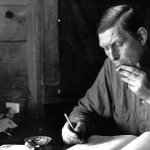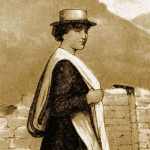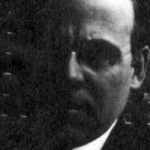A lot of water has passed under the bridge since 1963. Then, my concernwas particularly for my own people and this version was written especially for them. I am happy that it has done and is doing its job. However, I want it to be known, that I am not a proponent of the concept of cultural nationalism. I dearly love and am proud of my good, serious, sincere black people, yet at the same time, my concern is with all people of goodwill no matter the color. I make no mystique of blackness. I am a humanist. Indeed, I am auniversalist. This truth, I know. The liberation of black people in the United States is tightly linked with the liberation of black people in the far flungdiaspora. Further, and more important, the liberation of black and oppressed people all over the world, is linked with the struggles of the workers of the world of every nationality and color against the common oppressors, overlords, and exploiters of their labor.
Thus it was only natural that I should write "What Shall We Tell Our children?" in 1973. I have tried to tell them the facts of life and the truth as I see it:
I hope I have succeeded.
Thus it was only natural that I should write "What Shall We Tell Our children?" in 1973. I have tried to tell them the facts of life and the truth as I see it:
I hope I have succeeded.
What shall we tell our children who are black?
What shall we tell our children who are white?
What shall we tell children of every race and hue?
For all children are the children of all of us
And all of us bear responsibility for all children
What shall we tell them?
How can we show them the conditions of their lives
So they will see how they can change them?
Those who are poverty stricken in the midst of plenty
Who must live in rat-infested slums
While decent homes stand empty
Who go to bed hungry
While grocery shelves are heavy
Who huddle in tattered rags
While racks in stores are sagging
Who yearn for a good education
But languish in programmed illiteracy
Whose intellectual growth is stunted
And whose ignorance is compounded
While the Academies produce more drones for the labor colony
What shall we tell them?
How can we show them the conditions of their lives
So they will see how they can change them?
What shall we tell our children
The men and women of the future?
We shall tell them the truth
It is our bounden duty to tell them the truth
It may be painful. We must tell them the truth
We may be criticized. We must tell them the truth
We may be castigated.We must tell them the truth
The truth it shall be, shall show them the conditions of their lives
Of a glorified way of life, the greatest in the world
Which is not concerned with people, but with profits
Not with the well-being of many, but with the interests of a few
Not with the welfare and future of the people
But only with the profit-making present
We shall tell them the truth about a way of life
The greatest in the world
Where freedom and equality is granted to every man, woman, and child
Where everyone, providing he is willing to do what is necessary
Can become rich and wealthy by doing others before they do you
Where everyone, including you
Can acquire life's most important goodies
Like split-level houses, with wall-to-wall carpeting completely furnished
And two cars and two color T.V.'s
And the latest style clothes and minks
And schminks and everything!
We shall tell them the truth
About a way of life
The greatest in the world
Which rejects the wisdom of its seers and sages
And whose culture is dictated and delineated by
Violent, vicious, destructive
Murderous, unfeeling, crude
And quick on the draw supermen
Who deem the men and women of the future
As expendable and shunt them off to
Purposeless death in the name of patria and patriotism
Who slaughter the innocents who protest or speak for Peace
We shall tell them the truth
We shall tell them the truth
About a way of life, the greatest in the world
Whose primal motivation is material acquisition
Wherein the majority of the people derive happiness
From having things which others do not have
Whose all high, omnipotent
All powerful Jehovah, Jesus, Lord
god, Allah and all Supreme
Is the adulated, sought after, live for,
Steal for, murder for, Almighty D-O-L-L-A-R dollar!
We shall tell them the truth
About a way of life, the greatest in the world
Which manipulates and expends young lives
So that parasites may live and survive
Whose aim is but to acquire and kill
And kill and acquire again and again
At home and abroad and everywhere
We shall tell them the truth
We shall urge them to examine their way of life,
The greatest in the world
Which deliberately depresses the conditions of life
Which offers no bright future
But instead keeps people in fear
Insecurity and in constant turmoil
Which decimates their ranks
With endless predatory wars
We shall tell them the truth
About what life could be made to be
And how they themselves can help to make it
Bright, happy and secure.
We shall show them that life
Is ever in motion, constantly going through
Processes of change, shall strengthen them in the belief
That it is possible for men and women,
For they themselves, for all of us
To live in harmony with our environment
And the Universe
Shall teach them that our knowledge increases
The more we gain control over our envirnment
And exploit it not for private gain but for our own happiness
We shall tell them the truth
We shall encourage them to expand their knowledge
Of the known and the unknown
To destroy the cobwebs of superstition
To find that there are no mysteries
Either in life or in nature
And that above all there is nothing to fear but fear itself.
We shall tell them the truth
Shall suggest this way of life
Can truly be made to be among the
Greatest in the world
That through their own efforts
They can forge a new way
A superior way, a good way of life
Which is in harmony with the true purpose of life
Wherein the people themselves control the conditions of their labor
Wherein the people have the total benefits of their labor
And where men, women, and children
Live lives free from exploitation.
We shall tell them that a way of life is possible
Wherein the people may own the means and tools of production
And use them solely for the abundance of the whole people
And not for the aggrandizement of a few
As in the old way.
We shall tell them the truth
We shall arm them with the knowledge of how to survive
In an atmosphere fraught with danger and hostility
We shall urge them to heed
The wisdom bequeathed to us bythe elders
And to have faith. To have faith.
In people, in themselves and their fellow human beings
And to have respect and love for all of humankind.
We shall tell them
To keep the belief that thepurpose of life
Is to continue to grow and create
And to contribute to growth and create
And to contribute to growth and
Creativity toward a better life
For people now and for generations to come
What shall we tell our children?
We shall tell them the truth
We shall imbue them with the vision of the new tomorrow
Seemingly far, but yet so near
We shall tell them that they hold the power in their own hands
To make this new way
A reality in our own life time.




















Comment form: